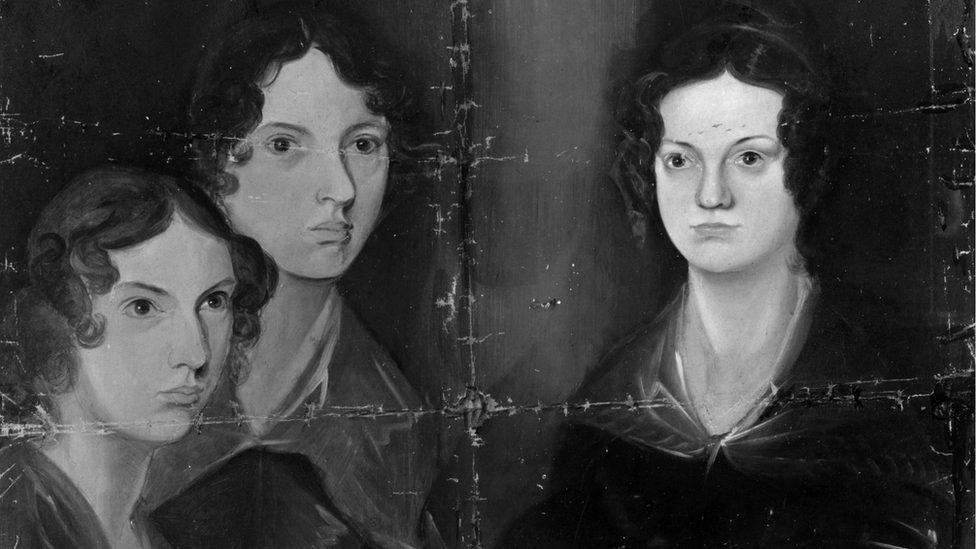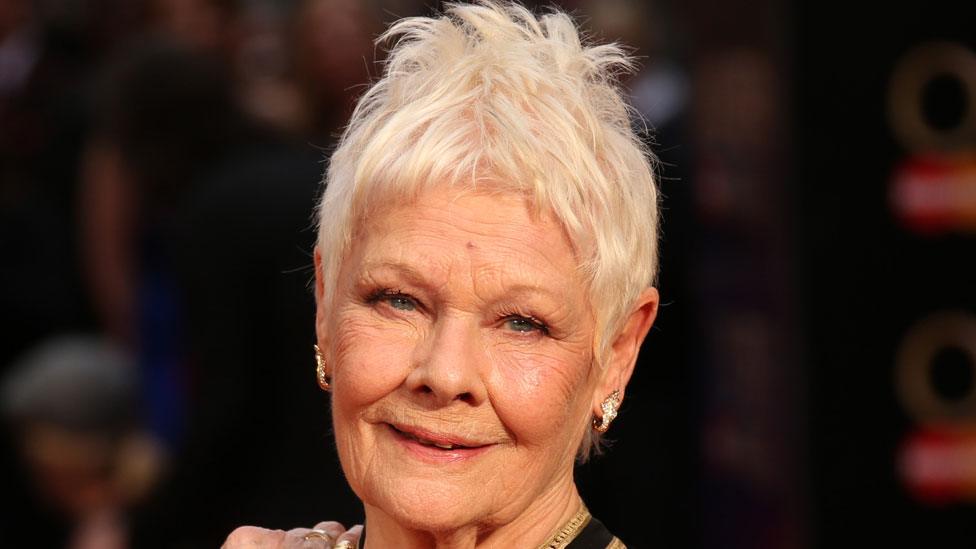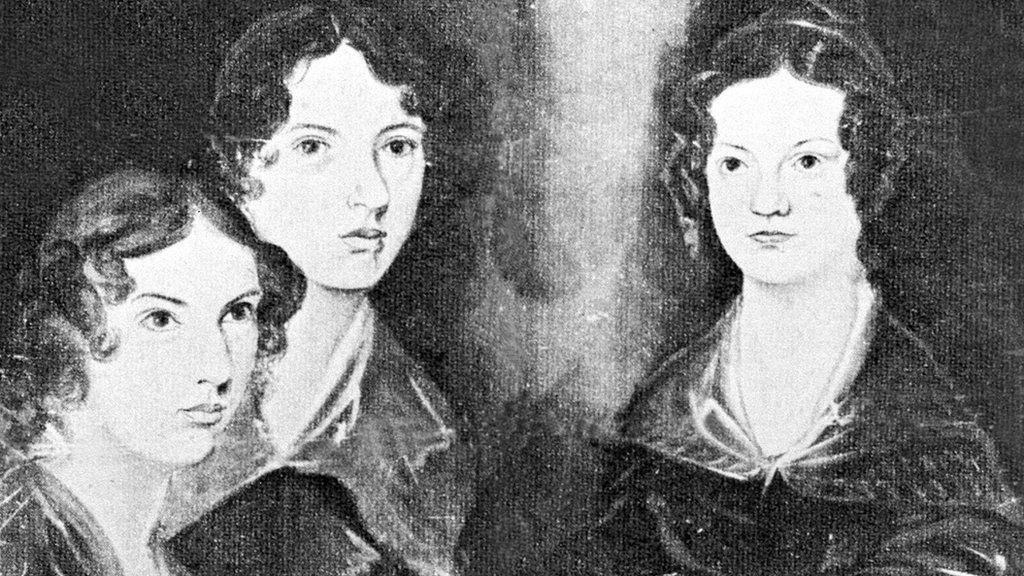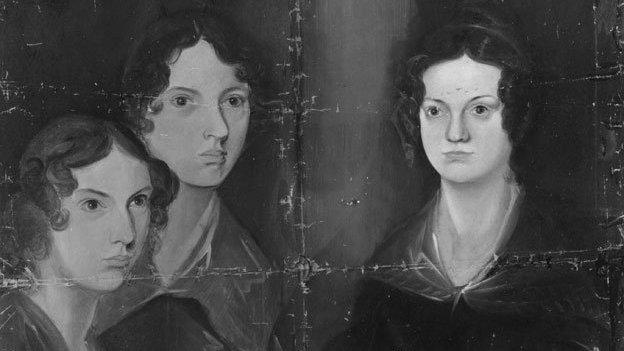Reinventing the Bronte sisters for the 22nd Century
- Published

Villette is a radical reimagining of Charlotte Bronte's final novel
With a rock musical about the Bronte sisters and a Charlotte Bronte story set in the 22nd Century, a theatre in Yorkshire is trying to change the way we view the famous literary family.
"I'm not that interested in costume drama," says James Brining, artistic director of the West Yorkshire Playhouse in Leeds, discussing the theatre's Bronte season.
You might think being interested in costume drama would be an essential requirement for putting on a season dedicated to the Bronte sisters, whose stage and screen adaptations are rarely without a full set of bodices and bonnets.
But Brining says he wants to "look at the Brontes from as many different perspectives as possible" to explore what they and their stories mean today.
So, in that spirit, a futuristic stage adaptation of Charlotte's final novel Villette catapults the action from 1853 to circa 2216, with the heroine Lucy Snowe depicted as a clone.

The Bronte siblings will break into rock anthems in a musical about their lives
Meanwhile, a rock musical about the Brontes, composed by one of the people behind the Olivier Award-winning Showstopper!, is being staged in Leeds as a work in progress.
And there is an audio drama, intended to be listened to outside the former family home in Haworth, 20 miles away, about an estate agent who has fled London after an affair to seek solace in Bronte country.
The season is being staged to mark the 200th anniversary of Charlotte's birth.
One hundred and sixty three years ago, Charlotte published Villette, about a solitary young woman trying to find her place in the world, who gives away little of her intense inner self.
'A story worth telling now'
"It is about a woman who is invisible," says writer Linda Marshall Griffiths, who has adapted it for the stage.
"A Victorian, unmarried woman, who is thought to be useless in society, and yet she had this vibrant imagination, a fierce mind and an extraordinary voice. And that seemed to be a story that's worth telling now."
In the new West Yorkshire Playhouse version, Lucy is no longer an unassuming Victorian woman - she is a clone who has survived a viral pandemic.
"We could have done bonnets," Marshall Griffiths says. "But when you're adapting or reimagining something, it's worth thinking about how this book can speak to us. Sometimes if you jump into the future it can speak back to us about who we are now."
Watch a clip from rehearsals for Villette at the West Yorkshire Playhouse
On Thursday, the West Yorkshire Playhouse will host a debate about which is Charlotte's greatest work - Villette or her more famous debut novel Jane Eyre. Marshall Griffiths, unsurprisingly, votes Villette.
"I think Jane Eyre is all there in Villette, but there's no part of her heart or guts that aren't in Villette," she says. "Also the extraordinary language - it's really potent, deep, poetic, really brilliant stuff.
"It's a harder read but you've got to stick with it. It's such a deep book and there's so much that it's so rich and surprising. It makes my hair stand up when I read it sometimes. It's electrifying."
'Coming back into life'
Charlotte Bronte wrote Villette in the wake of the deaths of her sisters Emily and Anne and brother Branwell.
A sense of loneliness and loss hangs over the central character, but Charlotte was advised against explaining the absence of Lucy Snowe's family because it was thought to have been too autobiographical.
But in the stage version, Lucy is given two sisters - also clones, naturally, named Esme and Ash - who were killed by the virus.
"They haunt the whole play, in the way I think Emily and Anne haunt Villette," Marshall Griffiths says. "At the heart of Villette it's about someone moving from being totally and utterly devastated back into life.
"It speaks so much about where we're at now because it speaks about what it means to be an outsider - and that for women and for all those people who are outsiders, the journey back in is possible."

Charlotte Bronte outlived Emily and Anne by six years
The Bronte musical, titled Wasted, is a very different sort of show - but it too tackles Charlotte's reaction to the deaths of her siblings.
Wasted will be set in the 19th Century, will tell the story of the family themselves - and will feature actors in bonnets. But it is far from a traditional period retelling.
One song sees Charlotte howling over a grungy guitar: "Why go on writing words in books when the truth is - everybody dies?"
The music is composed by Carl Miller and Christopher Ash, founding member of improvised musical Showstopper!.
"They had really quite difficult lives and there's a lot of strife and struggle going on in their story," Ash says. "The first song that we wrote was called Everybody Dies for Charlotte because she outlives the other three. All of this pain - that's a place to sing rock from."

Christine Allado plays youngest sister Anne Bronte in Wasted
The show already has one influential fan - it has won the musical theatre award and a £10,000 grant from the Kevin Spacey Foundation.
Although there will be bonnets, the volume of "passion and energy" in the Brontes' lives means it will not seem out of place when the sisters open their mouths and rock anthems come out, Ash believes.
The show's musical style has an "experimental edge" in an attempt to do justice to the sisters' groundbreaking work, he adds.
"There's straight rock but also really extreme grindcore, synth-pop and jazz-rock with interesting time signatures.
"There are some nods to more traditional musical theatre things, but when people come and see it, we really want them to feel like they're at some level at a gig. We really want to mix those worlds."
Fans of gentle costume drama have been warned.
Villette is at the West Yorkshire Playhouse until 15 October. Wasted is on from 20-22 October.

Follow us on Twitter @BBCNewsEnts, external, on Instagram, external, or if you have a story suggestion email entertainment.news@bbc.co.uk, external.
- Published16 April 2016

- Published2 February 2016

- Published18 May 2015
